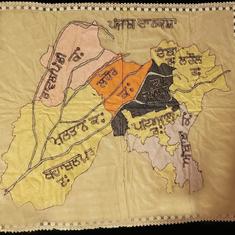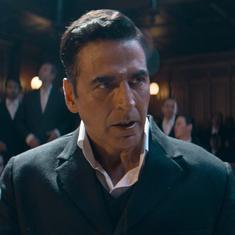And so, Rio’s journey has begun.
The build-up to the Olympic Games was beset with existential gangrene and reputation-related problems to such an extent that the righteousness of the Olympic endeavour and the abandonment of Pierre de Coubertin’s ideal of manly exercise in a genteel ambience actually came under question.
At least Brazil, often a ludicrously, infuriating country, doesn’t pretend. What you see is what you get. And yet, the opening ceremony tried to minimise Brazilian stereotypes and pageantry, a giant so often portrayed as the capital of samba and happiness, as a utopia to envy. Fernando Mereilles, the director of the opening ceremony who had previously helmed the famed Brazilian movie City of God, wanted honesty, refraining from the double Brazilian myth of a sports-mad population, constantly intoxicated by an overall ecstasy and hungover on felicity.
The Maracana scarcely needed a reminder of myth wrapped up in another one. Opposite the stadium lies Mangueira, one of Rio’s many favelas (Brazilian slums), part of the city’s uncontrollable and sprawling urbanism, where hard living is almost an entrenched part of life – Brazil as the world champion of inequality, as historian Eric Hobsbawn puts it. The vast majority of Cariocas (as Rio’s residents are known) wake up before the crack of down and commute hours to work for a pittance as wages, repeating the dreary cycle with little prospect of advancement in life.
Voices from the marginalised
The ceremony had the elements of mandatory empowerment, with voices from the favela. The 13-year-old Cristian do Passinho performed the “passinho”, an eclectic dance style from the favelas’s nightly hotspots. MC Sofia, a 12-year old rapper from Sao Paulo’s suburbs, and Karol Conka, from Curitiba, represented the black contribution to Brazilian popular culture.
In fact, there was plenty of the latter. Supermodel Gisele Bundchen’s catwalk demonstrated Brazilian sensuality, in a slow walk across the giant white floor as the Tom Jobim's grandson sang that iconic 1960’s classic, The Girl From Ipanema. Fifteen hundred performers filled the stage to Jorge Ben Jor’s screeching guitar and Regina Case’s Pais Tropical [Tropical Country]. Transgendered individuals, Brazilians from the northeast, and other marginalised minorities all participated.
Unsurprisingly, Argentina’s entrance during the athletes’ parade was severely booed, and Anitta and a battery of Samba schools danced their way to the lighting of the Olympic flame.
But it was not always a politically correct ceremony. Brazil’s interim president Michel Temer was omitted from the protocol and, fearing public scorn, with the boo-meter already hitting a maximum, he mumbled something about opening the games.
Baring its soul
More daringly, though, Mereilles and his producers did not script Brazilian history, a distinct feature of the Sochi and London opening ceremonies, who both framed the oppressive parts of their past. From the onset, Rio honoured Brazil’s chronic turbulence.
The night’s first video fragment, presenting Rio’s vocation as an Olympic city, was accompanied by the song Aquele Abraco [That big hug] from the famed Gilberto Gil, his farewell song before his exile from Brazil under the military dictatorship. In Brazil, military rule was not authoritarian in the same savage sense as in other South American countries, but as a young democracy Brazil still bears the scars and remains frail. Later on, the sound of whips cracking and chains rattling to anchored some abstraction when recounting the slavery of Africans.
A plea for conversation followed history and carnival in an overt departure from the Olympic tradition of neutrality. Rio showed the world a boy lost in a maze of dire landscapes and colourless buildings, He then became fascinated by a fragile seedling. The message was clear – Brazil as the last, precious garden and oxygen lung of the world – though the voice-over was slightly too long.
Rio putting climate change at heart of #OpeningCeremony caused a stir https://t.co/1dbNfjdjhH pic.twitter.com/WcFTXAIhQo
— Huffington Post UK (@HuffPostUK) August 6, 2016
But at least, Rio took a stance. Beijing 2008 was momentous for its sheer gigantism and frightening militarism – a euphoric China reclaiming its global place. London 2012, in contrast, was utterly and truly British, scattered with infantile humour and a dose of pantomime.
But Rio had a soul, absorbing and seductive, showing both Danny Boyle and Beijing how to excel with a minimalist $3 million production. That’s how it sometimes also felt, without too many histrionics and much high-tech, but only rightly so, in a city on the edge, but, always, with the manic compulsion to throw a party. They feted shared values of humanity.
“It’s the best place in the world, right here, right now,” shouted the president of the local organising committee Carloz Numan, with much flair, oscillating between the state of a deluded geriatric patient and the autocratic sports administration he represents. Indeed, on the night, the world was Carioca, but Nuzman and International Olympic Committee president Thomas Bach gobbled up so much self-congratulatory nonsense that even Sepp Blatter would have felt embarrassed.
So, after all the doomsday scenarios, Rio delivered on its first night, at times exuding a more profound “Brazilian-ness”. Now, an exalted 16-day sporting extravaganza follows after seven years of blowing the budget, human rights abuses, social cleansing, and the many Fascist measures that are now an integral part of contemporary sporting mega-events. The athletes, like the opening ceremony – cut out the speeches – will show that there is still some humanity left in the Olympic cosmos.
For all the sports scores and reports, go to The Field.










